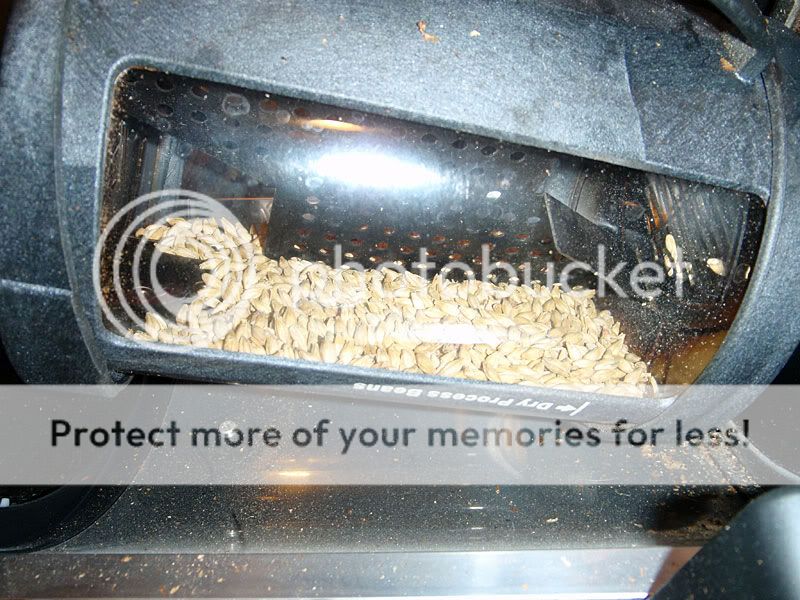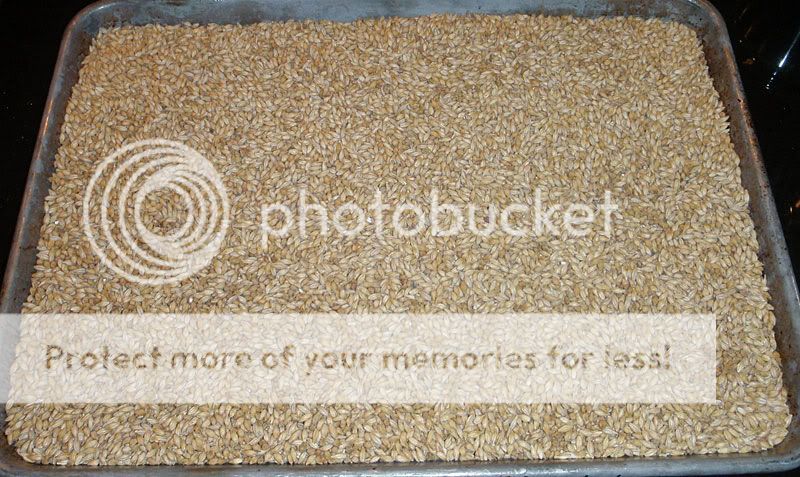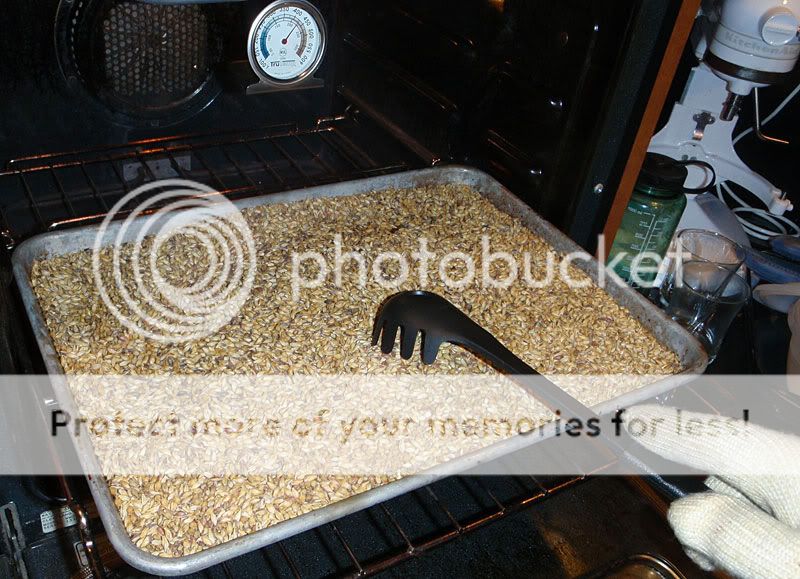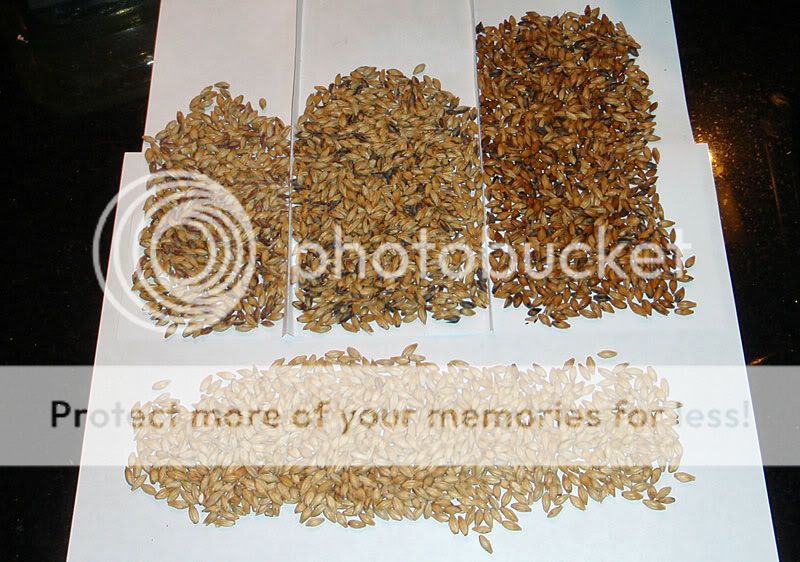nostalgia
Well-Known Member
I got in on a grain buy recently and decided to play with some malt. My wife home roasts coffee beans, so I decided to try our Gene Cafe out on some 2-row (if you want to see the Gene Cafe in action, ).
I loaded up the hopper with 1/4lb of 2-row. I should be able to do 1/2lb at a time, but I decided to keep the experimental batches small.

I did two batches - one with the machine set for 400F and 10 minutes, the second at 400F for 20 minutes.
While those were cooking, I heated my oven to 400F and put 1 1/2lbs of grain on a sheet pan and popped it in the oven.

After 15 minutes, I gave them a stir with my grain rake (also usable as a pasta fork).

And here is the result. Left to right is the 10 minute roaster batch, 20 minute roaster batch, and 30 minute oven batch. And of course unroasted 2-row across the bottom for comparison. I'm really surprised at how unevenly everything roasted up. I expected a lot more consistency from the roaster, since it tosses the grains around the whole time.

-Joe
I loaded up the hopper with 1/4lb of 2-row. I should be able to do 1/2lb at a time, but I decided to keep the experimental batches small.

I did two batches - one with the machine set for 400F and 10 minutes, the second at 400F for 20 minutes.
While those were cooking, I heated my oven to 400F and put 1 1/2lbs of grain on a sheet pan and popped it in the oven.

After 15 minutes, I gave them a stir with my grain rake (also usable as a pasta fork).

And here is the result. Left to right is the 10 minute roaster batch, 20 minute roaster batch, and 30 minute oven batch. And of course unroasted 2-row across the bottom for comparison. I'm really surprised at how unevenly everything roasted up. I expected a lot more consistency from the roaster, since it tosses the grains around the whole time.

-Joe
Last edited by a moderator:



